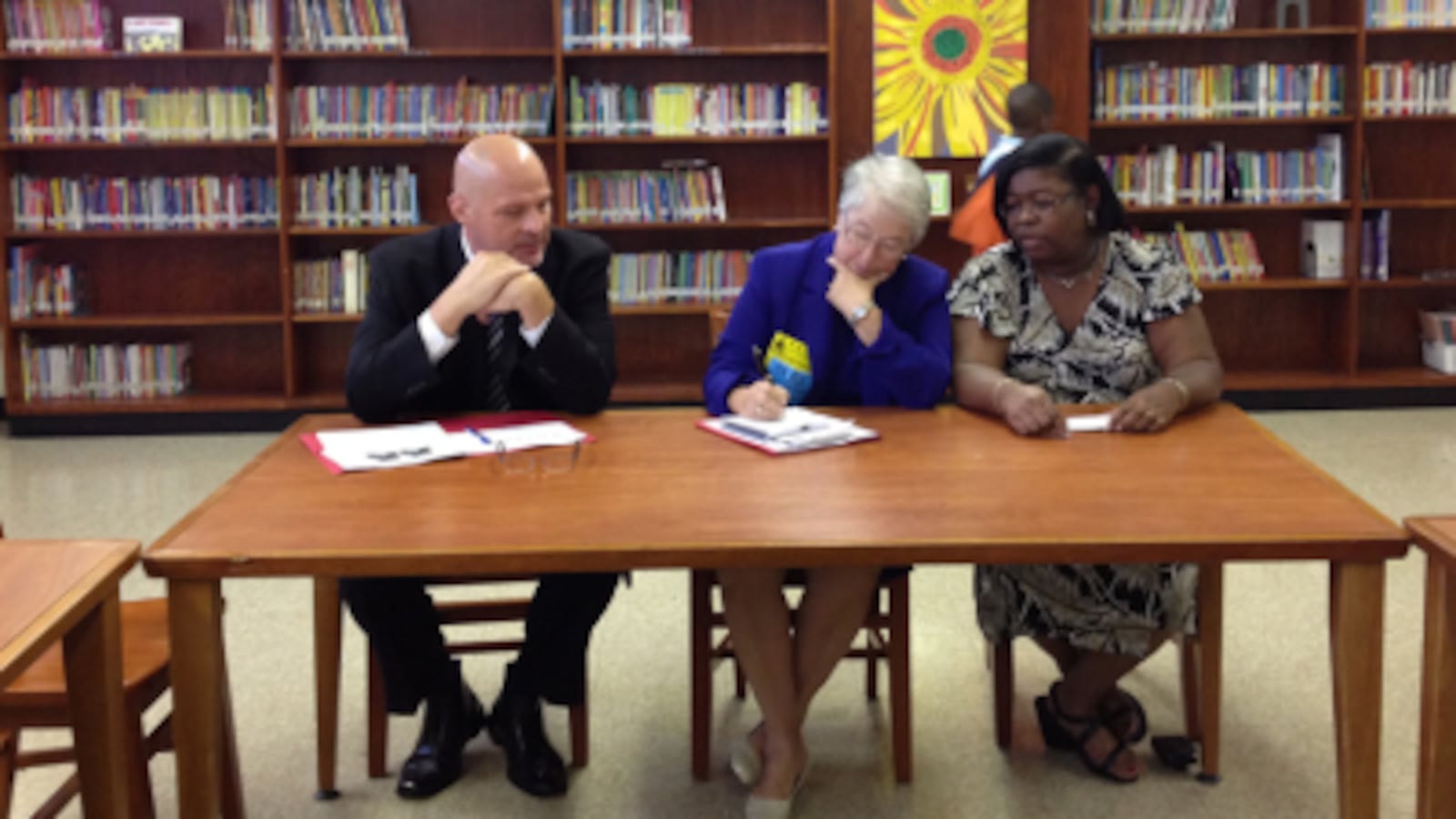One way to increase parent involvement: invite the schools chancellor to a community discussion about how to attract more parents to the school.
During P.S. 206’s first mandated period of parent outreach, a provision of the new teachers union contract, Chancellor Carmen Fariña and teachers union president Michael Mulgrew discussed how to make the minutes count with about 30 East Harlem parents and principals.
“I want to see November [parent conferences] be appointment-only meetings with parents,” Fariña said, explaining that her preferred meetings would also include students. Allowing students to share what they are best at, and what they need help with, makes the meetings more productive and improves their self-esteem, she said.
The longer conferences would be made possible by the new contract, which says 40 minutes of teachers’ time after school on Tuesdays should be set aside for parent engagement activities like in-person meetings, phone calls or emails home, or parent newsletters. The contract also requires 80 minutes on Mondays to be spent on in-school teacher training.
Fariña has said that this additional time will help improve schools by improving communication about academics and social-emotional development. But the changes have been also been criticized for replacing tutoring time at some schools. (P.S. 206 will offer tutoring during the school day this year.)
P.S. 112 Principal Eileen Reiter said she is still figuring out exactly what will fill that parent-engagement time, but said it could include Zumba classes, open computer labs, and hands-on science experiments where parents and students participate together. (P.S. 112 and 206 are located in the same building and are both part of the ASD Nest program for students with autism.)
For child who is doing well academically but struggling socially, Fariña suggested sending home a “wow letter” each week to highlight something he or she he did well and help boost self-esteem. One teacher suggested inviting families to celebrations that showcase student talents.
Not all students struggled with self-esteem, though. During the meeting, a seventh-grader in a red polo shirt stood up to offer his thoughts.
“I would like to agree about your program,” student council member Giancarlo Herrera said.


